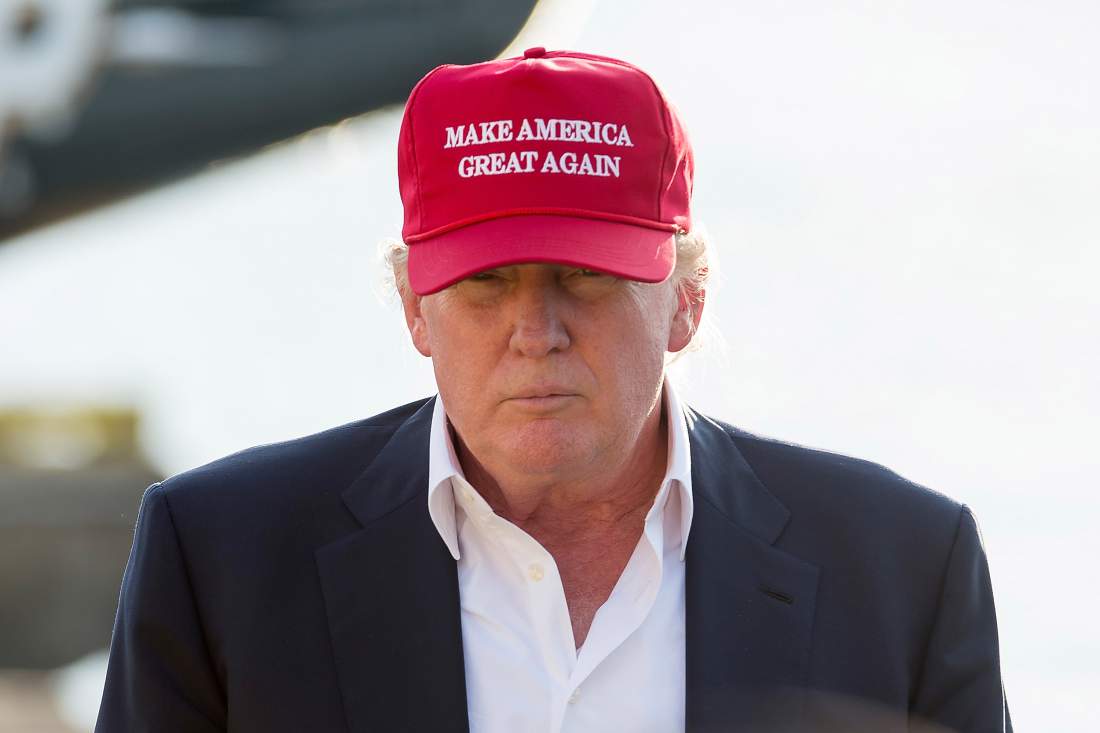The early success of the disgracefully bigoted Donald Trump Presidential campaign is the result of two forces: 1) Some white Americans sensing (correctly) that their unfair privilege is fading, and 2) Politics, tax codes, shifting global fortunes and new technologies combining to devastate the middle class in recent decades.
Someone must be held accountable, but it’s not a sure bet that the right people will be. Currently, one who’s most benefited from the rigged system, Trump himself, is leading in the Republican polls, a full-of-shit performer posing as a mad-as-hell reformer. He certainly has no economic expertise, but he does have a surfeit of anger. For now, that’s enough.
As always, it’s far easier to blame them than us. Not too long ago, Trump co-opted the Birther movement, an effort to label our first African-American President as them. In retrospect, it was the transition period from the soft, coded language of Gingrich and Rove to the overt and odious. That’s the new abnormal.
Those Americans cheered by a petulant, foot-stomping adult baby reminds me of a piece of marginalia George Saunders scribbled as he reconsidered CivilWarLand in Bad Decline: “Some issues: Life amid limitations; paucity. Various tonalities of defense. Pain; humiliation inflicted on hapless workers – some of us turn on one another.”
Evan Osnos, who wrote Age of Ambition, one of my favorite books of 2014, takes measure of Trump’s stump speeches and their eager listeners, in a New Yorker piece. The American Pharaoh line is the best sentence I’ve read in 2015. An excerpt:
What accounts for Donald Trump’s political moment? How did a real campaign emerge from a proposition so ludicrous that an episode of The Simpsons once used a Trump Presidency as the conceit for a dystopian future? The candidate himself is an unrewarding source of answers. Plumbing Trump’s psyche is as productive as asking American Pharoah, the winner of the Triple Crown, why he runs. The point is what happens when he does.
In New Hampshire, where voters pride themselves on being unimpressed, Fred Rice, a Republican state representative, arrived at a Trump rally in the beach town of Hampton on an August evening, and found people waiting patiently in a two-hour line that stretched a quarter of a mile down the street. “Never seen that at a political event before,” he said. Other Republicans offer “canned bullshit,” Rice went on. “People have got so terribly annoyed and disenchanted and disenfranchised, really, by candidates who get up there, and all their stump speeches promise everything to everyone.” By the night’s end, Rice was sold. “I heard echoes of Ronald Reagan,” he told me, adding, “If I had to vote today, I would vote for Trump.”
To inhabit Trump’s landscape for a while, to chase his jet or stay behind with his fans in a half-dozen states, is to encounter a confederacy of the frustrated—less a constituency than a loose alliance of Americans who say they are betrayed by politicians, victimized by a changing world, and enticed by Trump’s insurgency. Dave Anderson, a New Hampshire Republican who retired from United Parcel Service, told me, “People say, ‘Well, it’d be nice to have another Bush.’ No, it wouldn’t be nice. We had two. They did their duty. That’s fine, but we don’t want this Bush following what his brother did. And he’s not coming across as very strong at all. He’s not saying what Trump is saying. He’s not saying what the issues are.”•

